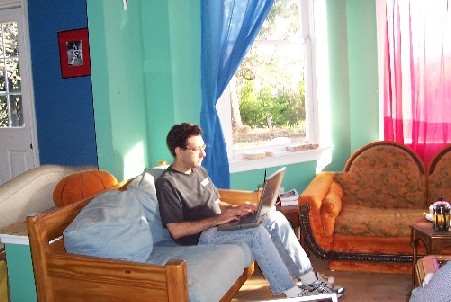Editorial:
Clear
Thinking
7/29/05
David Borden, Executive Director, [email protected], 7/29/05
Even within our own movement, clarity of logic in this particular area can be difficult to attain. I remember a conversation I had several years back on the "crack baby" issue with a strong sympathizer of drug reform, an individual who agreed with us completely on the policy side -- we need to offer appropriate help, not drive people away by threat of punishment which ends up hurting mother and child alike -- but who was still not comfortable agreeing that the evidence does not support the existence of crack babies, because of not wanting to say anything that could suggest that cocaine use during pregnancy is okay. I don't think people should smoke crack or snort powder cocaine during pregnancy either. But that value has no bearing on the question of what are the actual effects of maternal drug use on a fetus. Those effects are what they are, and are not what they are not, independent of how anyone feels about the idea of drug use during pregnancy. The harms are there if they are there, and they are not there if they are not there, period. It's a scientific question, not a moral one. I am not arguing that morality has no place in the equation, and there are legitimate moral questions that are related to this scientific question, to be sure. But while the scientific answers have some bearing on the answers to the moral questions, and the moral questions certainly help to drive which scientific questions we ought to be asking, morality has no bearing whatsoever on what the answers to the scientific questions ought to be. Answers to the scientific questions have to come from -- you guessed it -- the science. Otherwise they might not be true. Once we establish what we hope is a scientifically valid result, then we can move on to weigh the moral questions in light of that information. But it is vital that that order of reasoning be observed, otherwise the results won't make sense. (Sound familiar?) It may be even more important, then, to ask what the policies should be regarding drugs that do cause harm to the fetus, alcohol, for example. Should the mother be arrested, taken to the hospital in handcuffs, then taken back still bleeding to a jail cell, the child separated from her during the important first hours and days of bonding, as has happened in South Carolina where the prosecutions of pregnant drug-using women were pioneered? The prevailing view in the medical and public health professions -- and of my old aforementioned friend -- is no, such an approach ends up driving people away from needed prenatal care and treatment that would help their children. It is a senseless approach -- an immoral approach -- regardless of one's moral view of the actions of the mother. So scientific thinking as well as medical wisdom need to be brought to bear on this level of things as well. This is just one of the many ways in which drug warriors have failed to reason correctly. I could say that things might be better if students were taught more about logic when they went to school. But I don't think that's the problem in this case. The drug warriors are acting illogically because they choose to, because that's what they want to do. Even if it hurts children and families.
|

